Table of Contents

What is real?
We all think we know. But do we? This isn’t an argument in favor of nothing being real. On the contrary. It’s simply that knowing what is real and what is not can be difficult to suss out. Knowing that this barrier exists is perhaps the beginning of true wisdom.
There’s the small matter of cognitive biases, those well-established and attested brain blocks that make us think we know the score when we really don’t. Cognitive biases often have us seeing what we have trained ourselves to see rather than what is actually there.
When all you have is a hammer, all you see is nails.
Related, but not entirely distinct from this, are our emotions and our ego, which often have us seeing what makes us feel good rather than what is actually there. These can be just as vicious on rationality as the more objective cognitive biases, if not more. It is difficult to confront reality when reality is hurtful to us. And yet we must.
Rationality is a powerful tool that all those seeking self-actualization must employ if they wish to rise above. There are few things more damaging to our own success than being unwilling or unable to see reality for what it is and to deploy reason to extrapolate meaning from that.
These quotes all underscore the importance of both knowing what is real and understanding it rationally.
Upton Sinclair
“It is remarkably difficult to make a man understand something when his salary depends upon his not understanding it.”
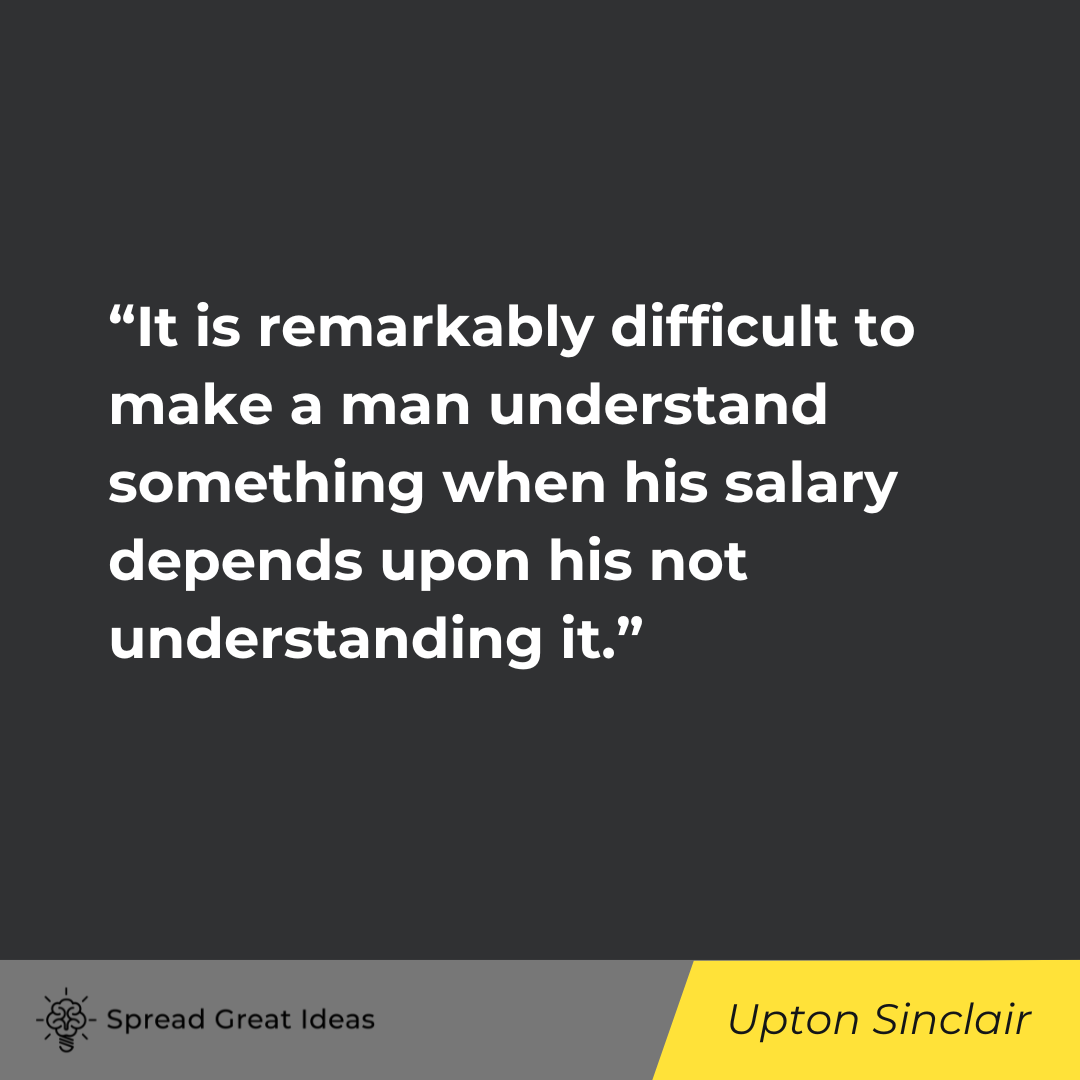
George Carlin
“It turned out I was pretty good in science. But again, because of the small budget, in science class we couldn’t afford to do experiments in order to prove theories. We just believed everything. Actually, I think that class was called Religion. Religion class was always an easy class. All you had to do was suspend the logic and reasoning you were being taught in all the other classes.”
– George Carlin, Brain Droppings
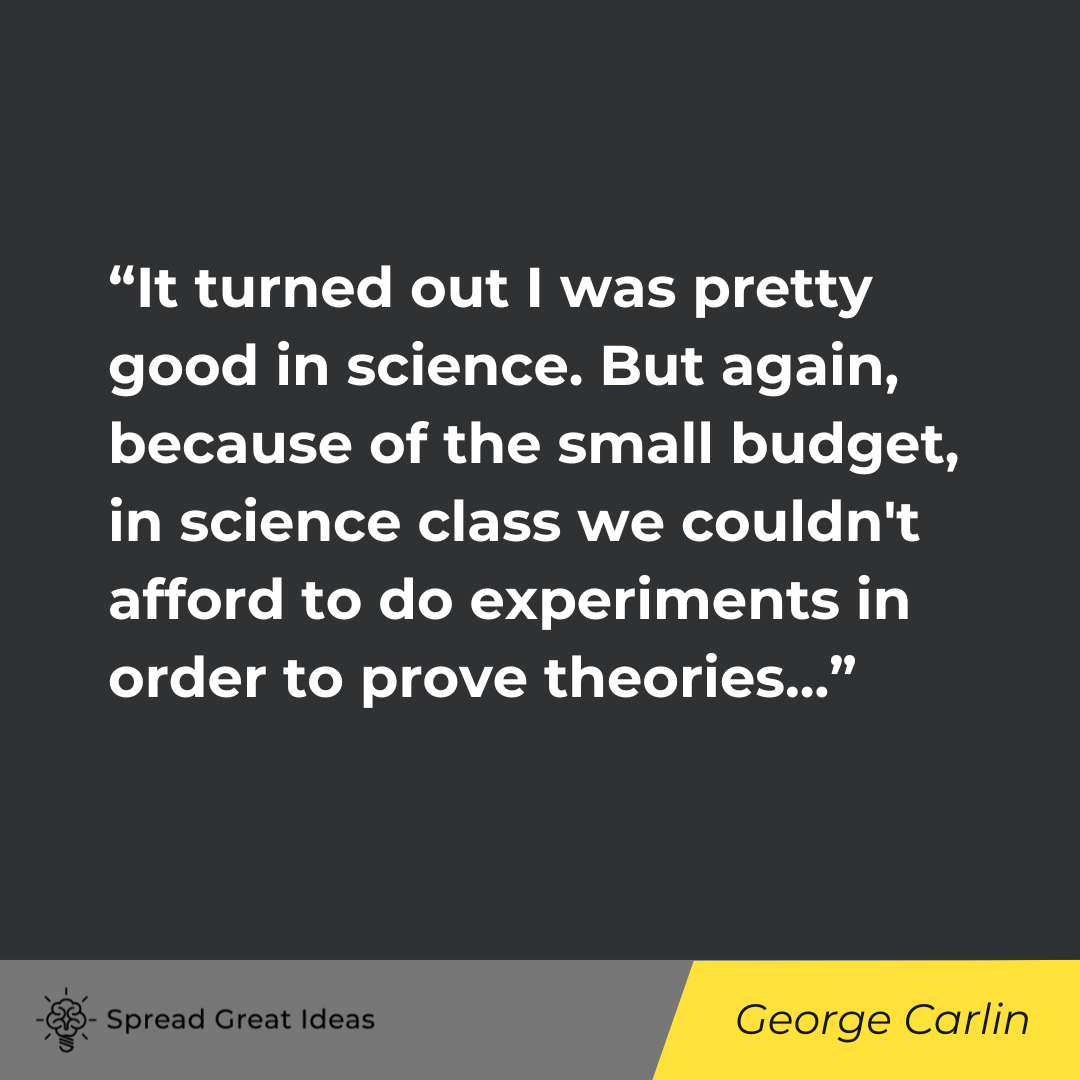
E.B. White
“I have yet to see a piece of writing, political or non-political, that doesn’t have a slant. All writing slants the way a writer leans, and no man is born perpendicular, although many men are born upright.”
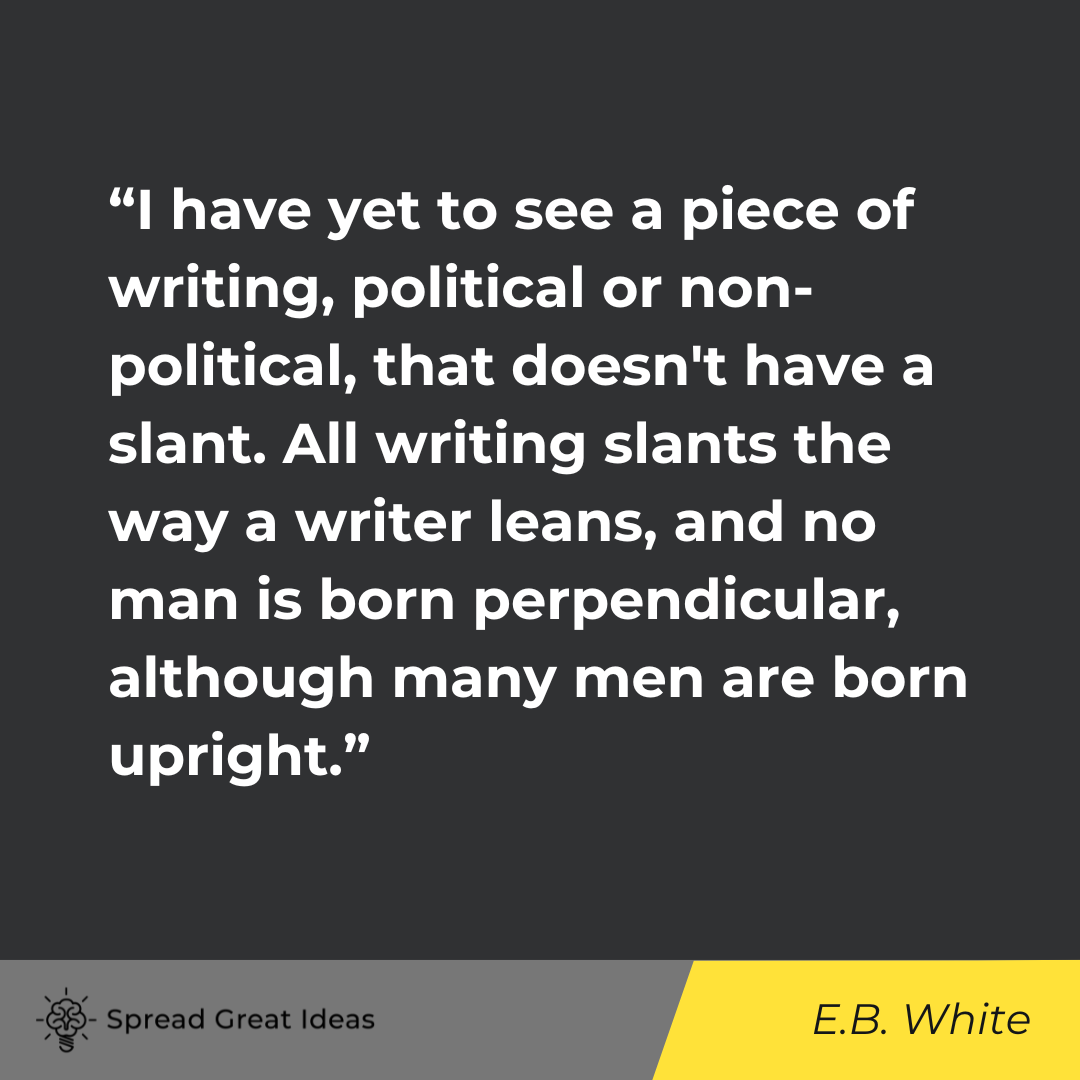
Dale Carnegie
“When dealing with people, remember you are not dealing with creatures of logic, but with creatures bristling with prejudice and motivated by pride and vanity.”
– Dale Carnegie, How to Win Friends and Influence People
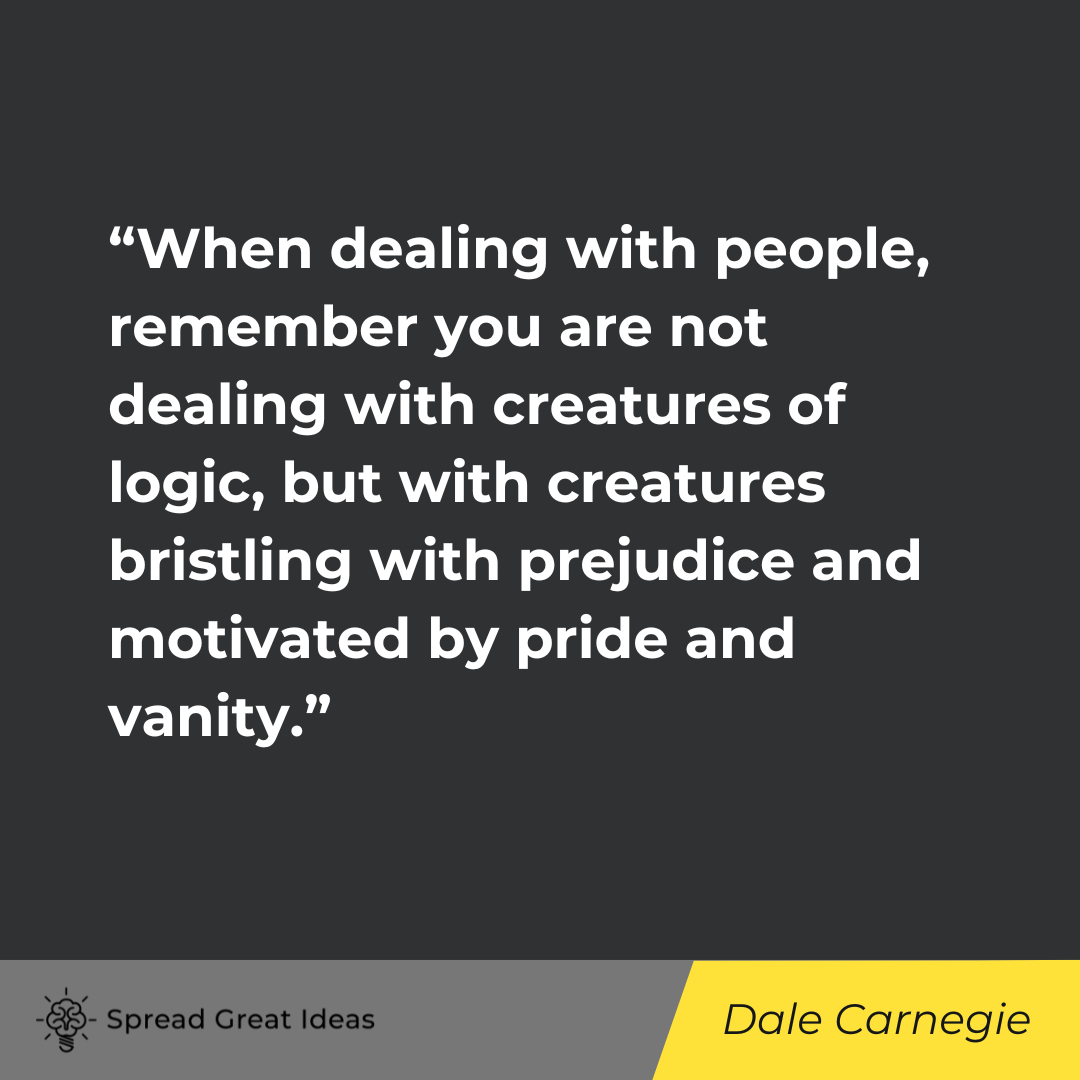
Niccolò Machiavelli
“Men judge generally more by the eye than by the hand, for everyone can see and few can feel. Everyone sees what you appear to be, few really know what you are.”
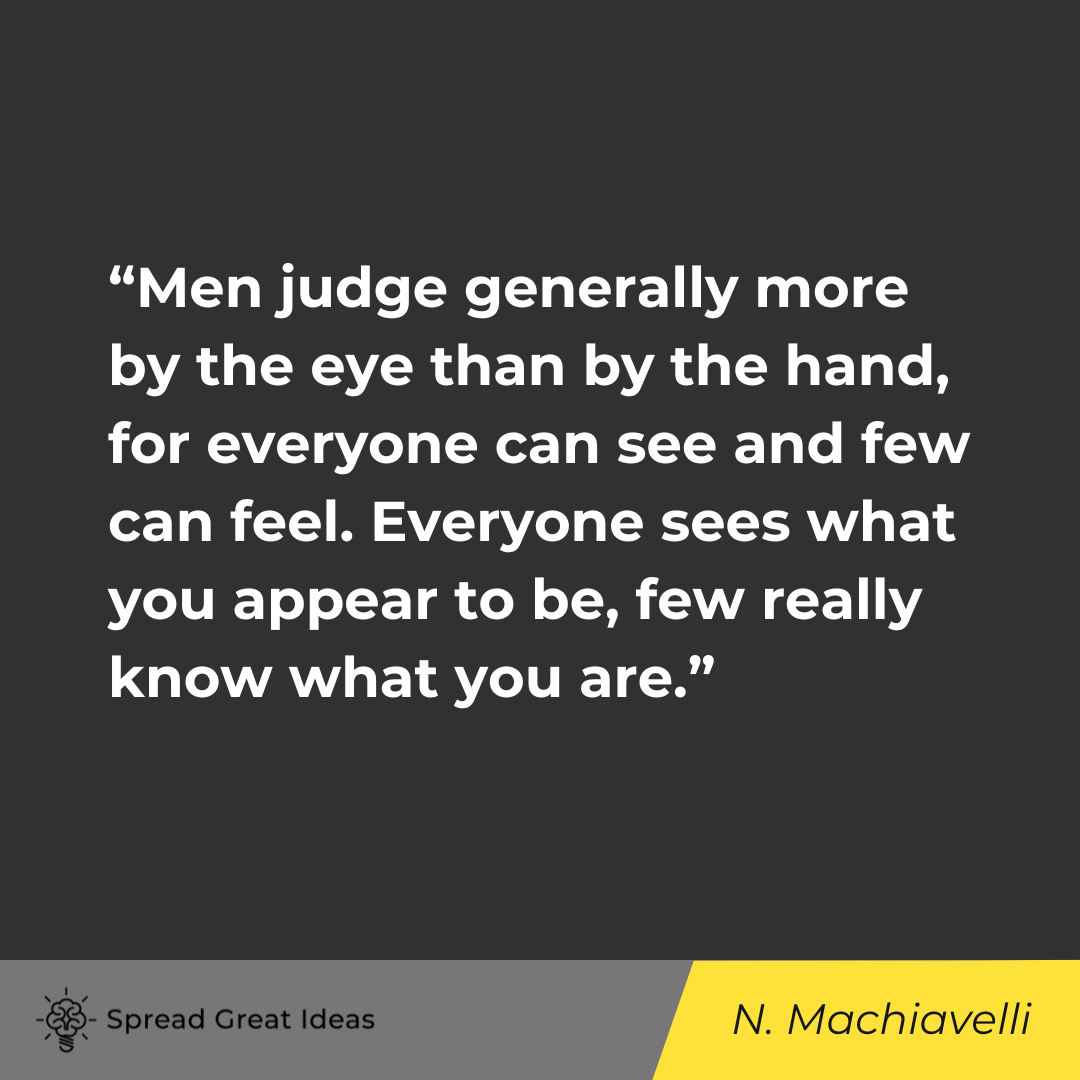
Friedrich Nietzsche
“How pleasant is the sound of even bad music and bad motives when we are setting out to march against an enemy!”
– Friedrich Nietzsche, Daybreak: Thoughts on The Prejudices of Morality

Mark Twain
“In religion and politics people’s beliefs and convictions are in almost every case gotten at second-hand, and without examination, from authorities who have not themselves examined the questions at issue but have taken them at second-hand from other non-examiners, whose opinions about them were not worth a brass farthing.”
George Orwell
“The nationalist not only does not disapprove of atrocities committed by his own side, he has a remarkable capacity for not even hearing about them.”
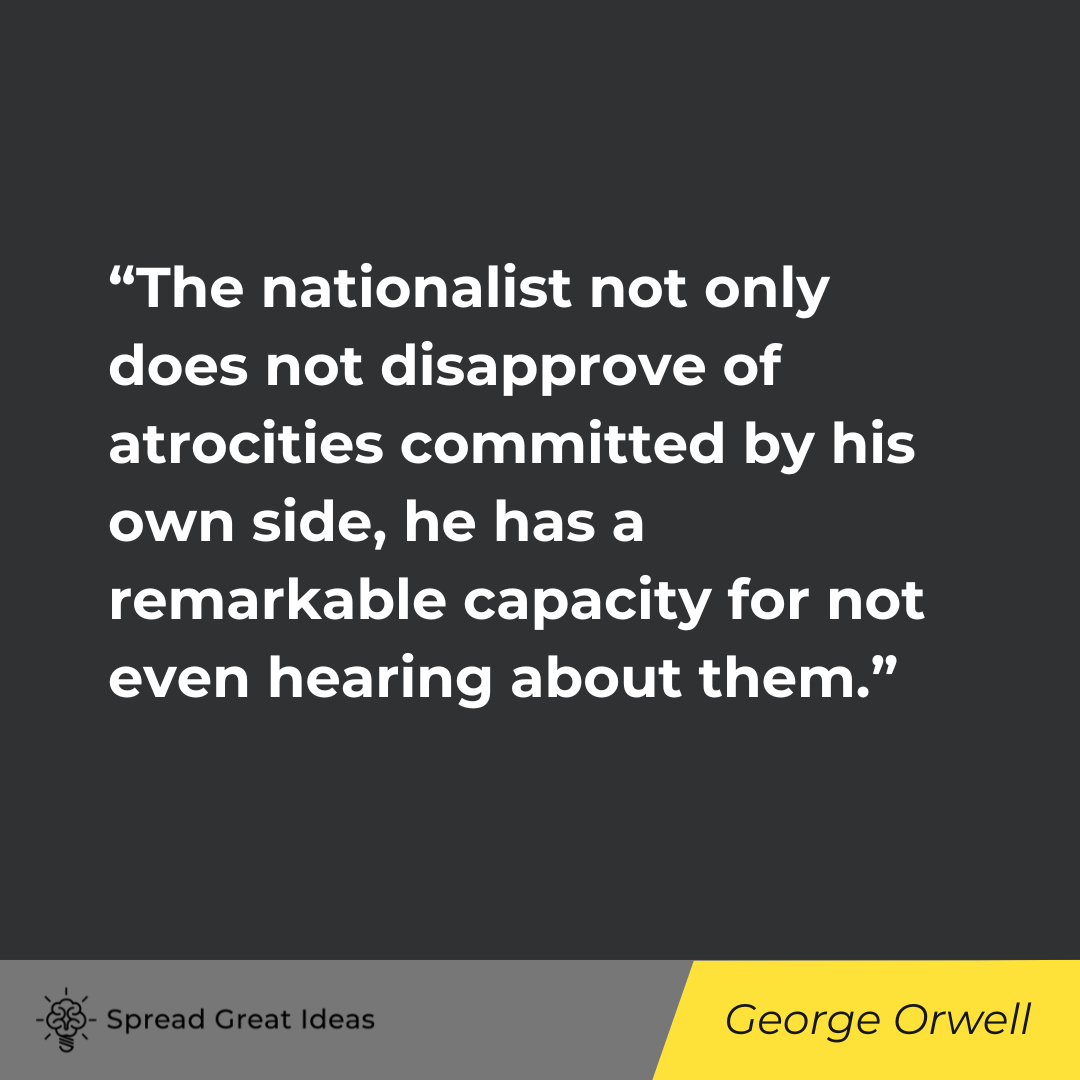
“For, after all, how do we know that two and two make four? Or that the force of gravity works? Or that the past is unchangeable? If both the past and the external world exist only in the mind, and if the mind itself is controllable – what then?”
“To know and not to know, to be conscious of complete truthfulness while telling carefully constructed lies, to hold simultaneously two opinions which cancelled out, knowing them to be contradictory and believing in both of them, to use logic against logic, to repudiate morality while laying claim to it, to believe that democracy was impossible and that the Party was the guardian of democracy, to forget whatever it was necessary to forget, then to draw it back into memory again at the moment when it was needed, and then promptly to forget it again: and above all, to apply the same process to the process itself — that was the ultimate subtlety: consciously to induce unconsciousness, and then, once again, to become unconscious of the act of hypnosis you had just performed. Even to understand the word ‘doublethink’ involved the use of doublethink.”
Jonathan Swift
“It is useless to attempt to reason a man out of a thing he was never reasoned into.”
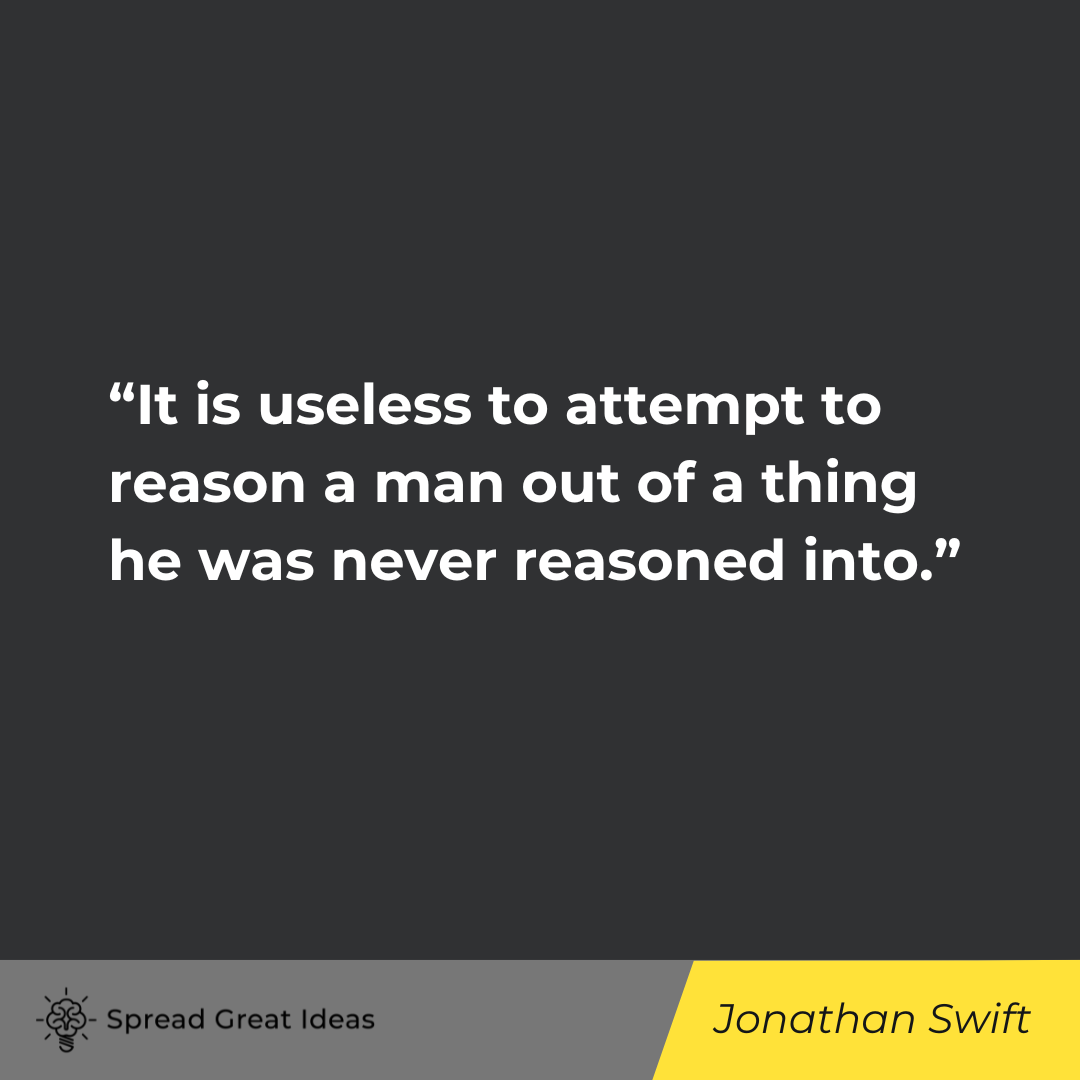
Phillip K. Dick
“Reality is that which doesn’t go away when you stop believing in it.”
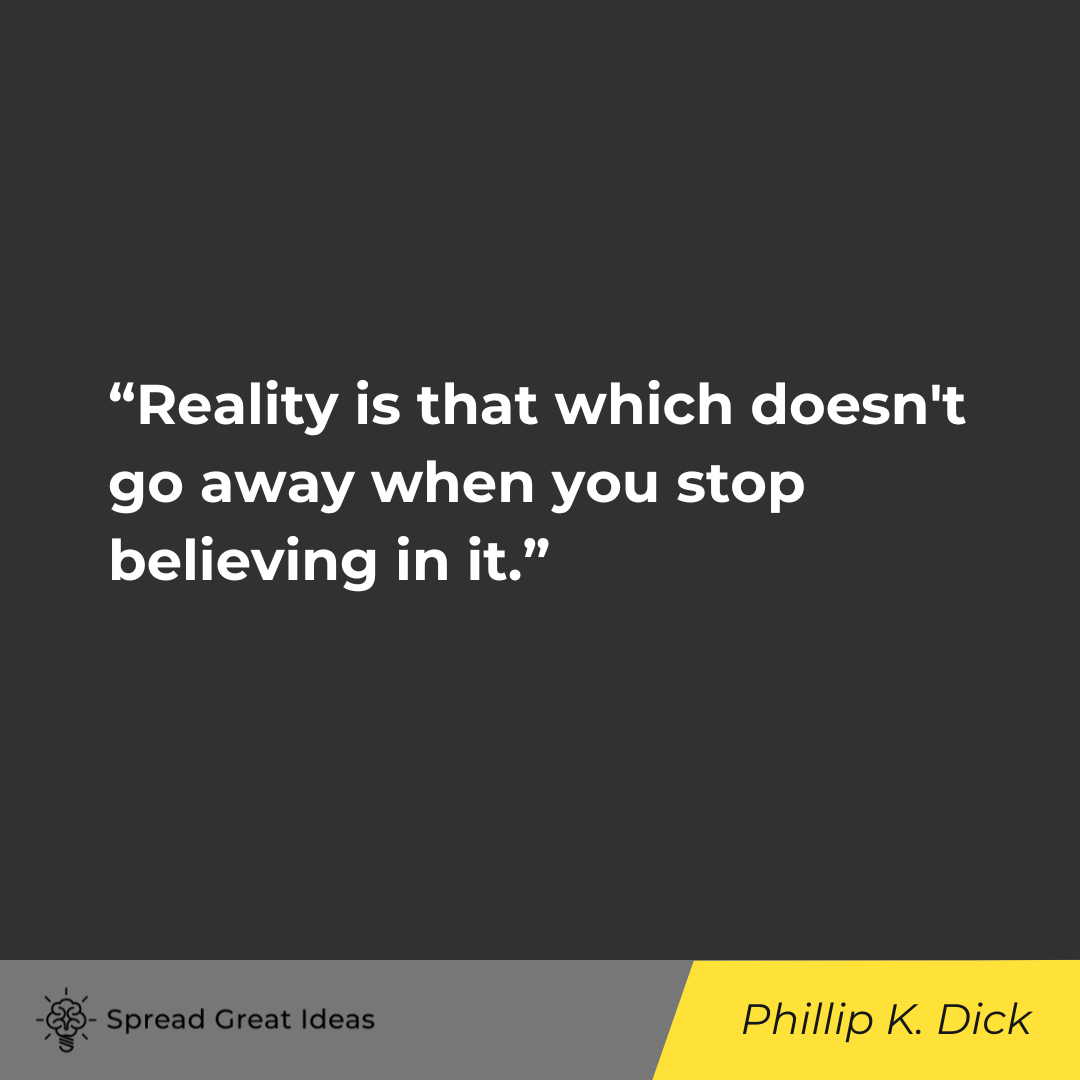
John F. Kennedy
“For the great enemy of the truth is very often not the lie-deliberate, contrived and dishonest- but the myth- persistent, persuasive, and unrealistic. Too often we hold fast to the clichés of our forebears. We subject all facts to a prefabricated set of interpretations. We enjoy the comfort of opinion without the discomfort of thought.”
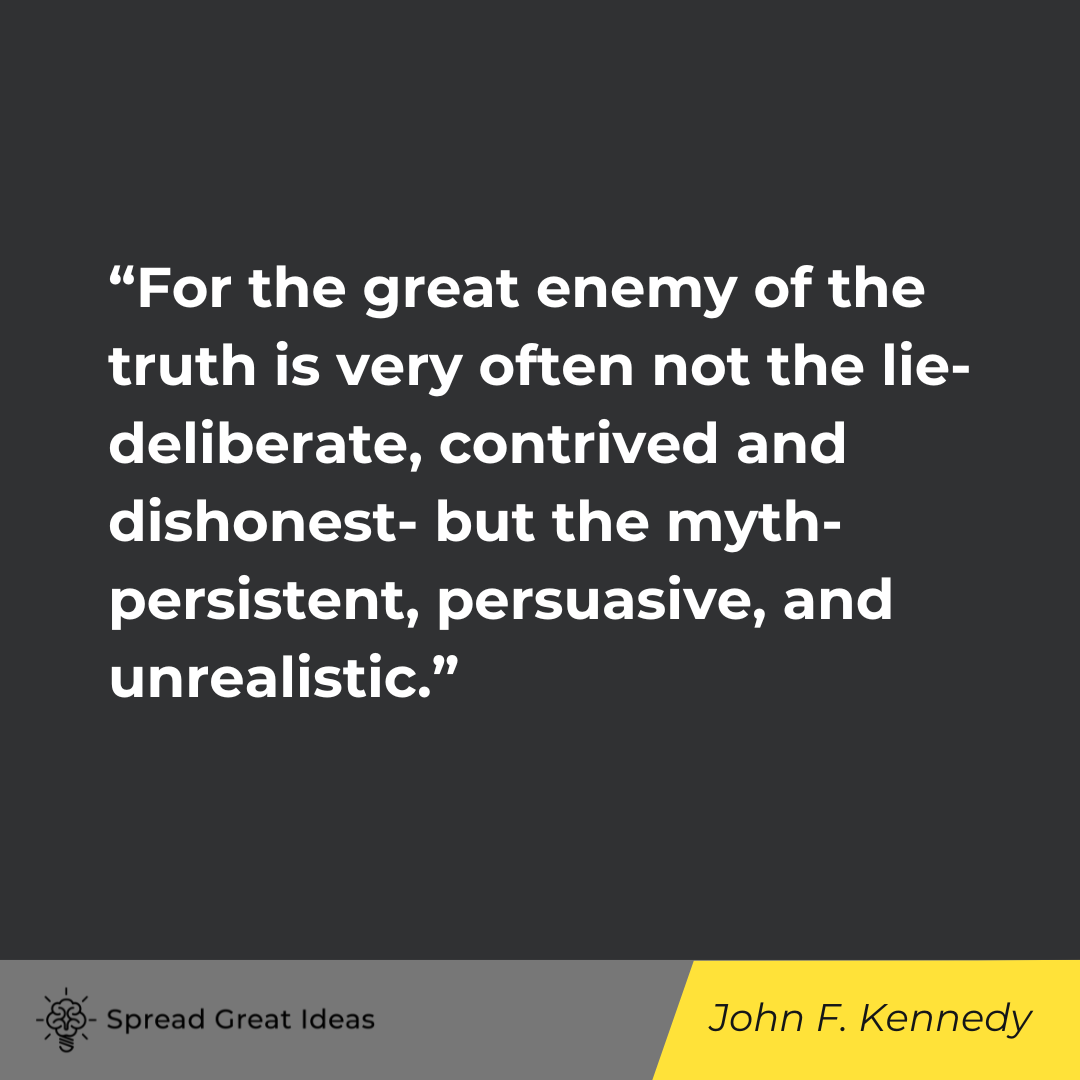
James Wolcott
“The lies the government and media tell are amplifications of the lies we tell ourselves. To stop being conned, stop conning yourself.”
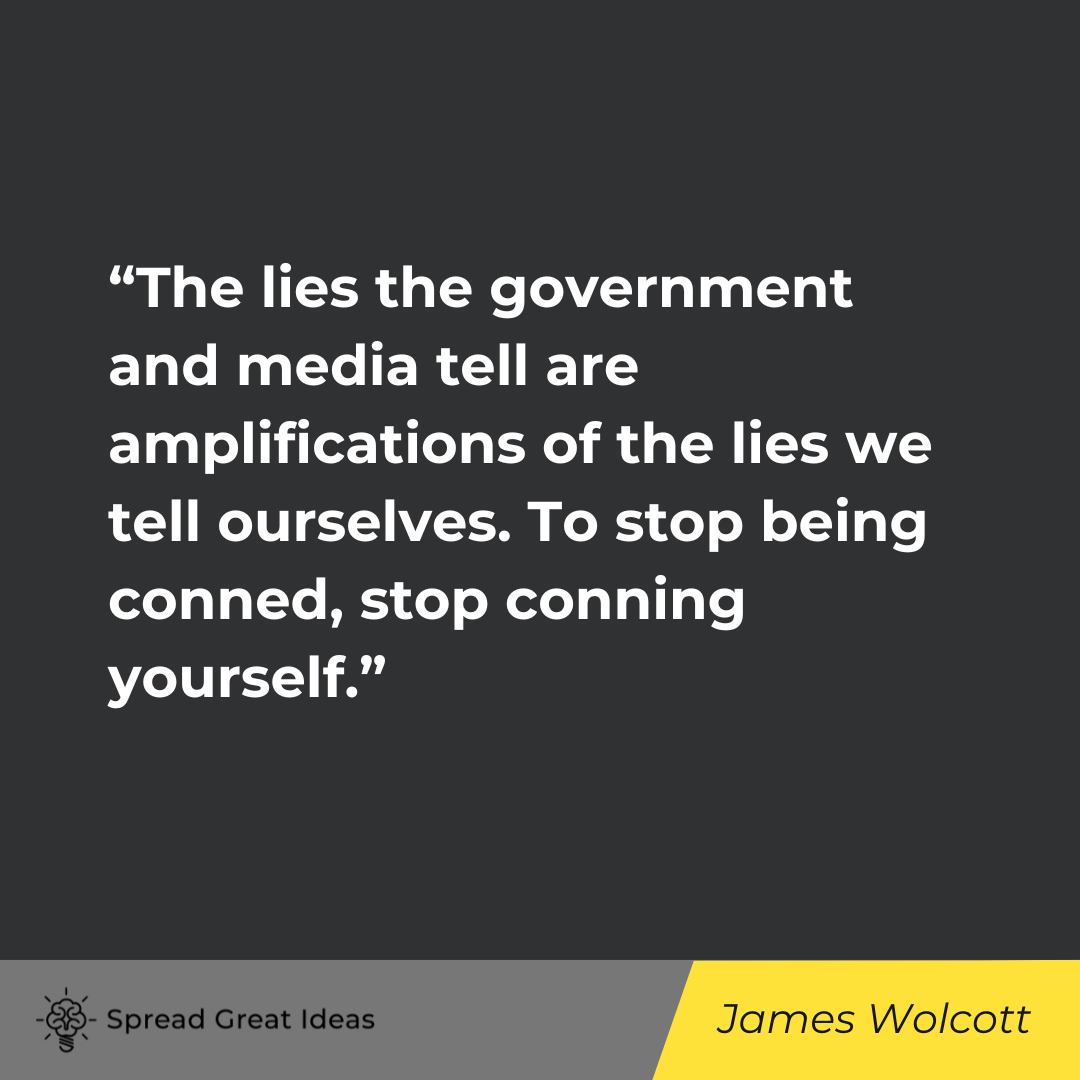
Sam Harris
“If someone doesn’t value evidence, what evidence are you going to provide to prove that they should value it? If someone doesn’t value logic, what logical argument could you provide to show the importance of logic?”
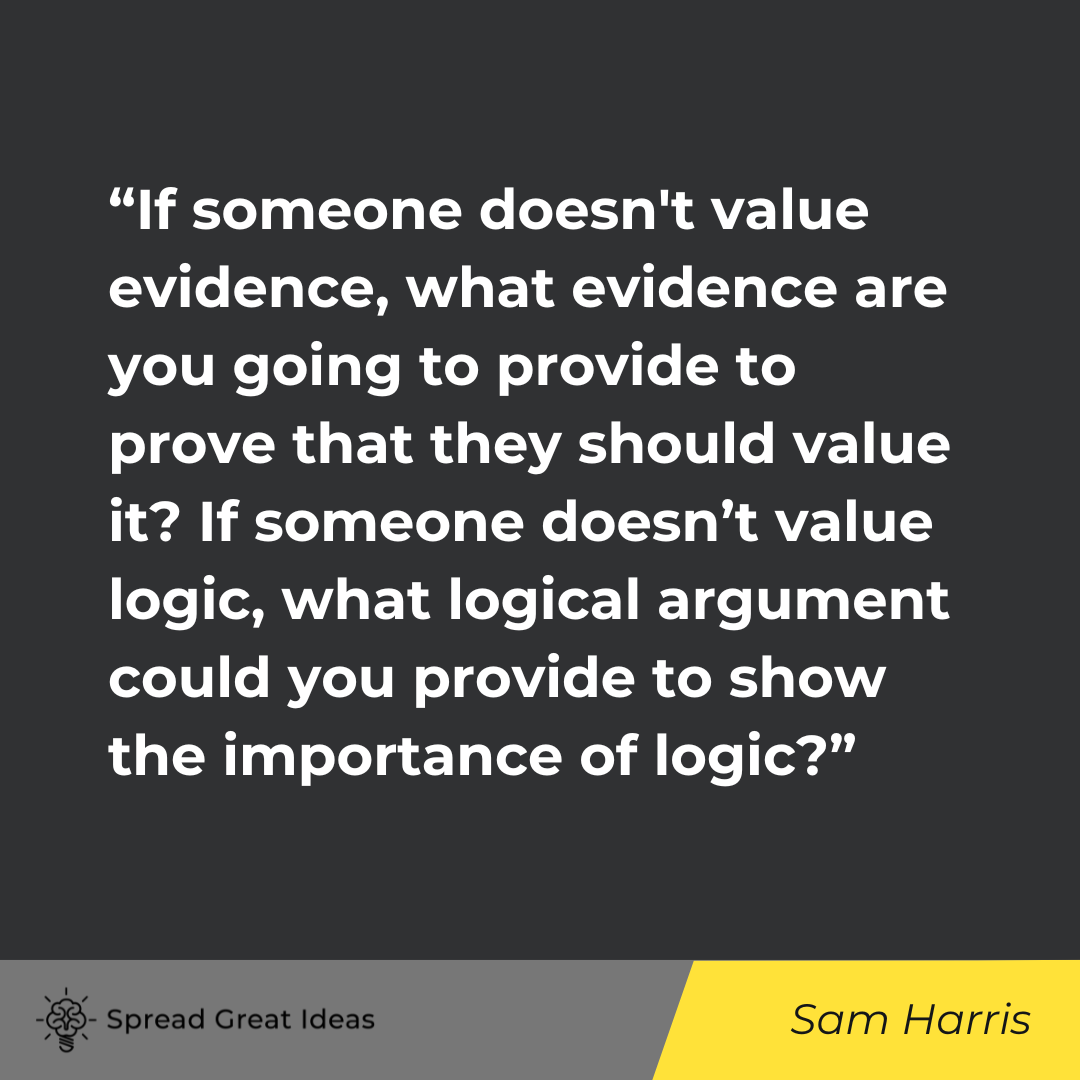
Blaise Pascal
“People almost invariably arrive at their beliefs not on the basis of proof but on the basis of what they find attractive.”
– Blaise Pascal, De l’art de Persuader
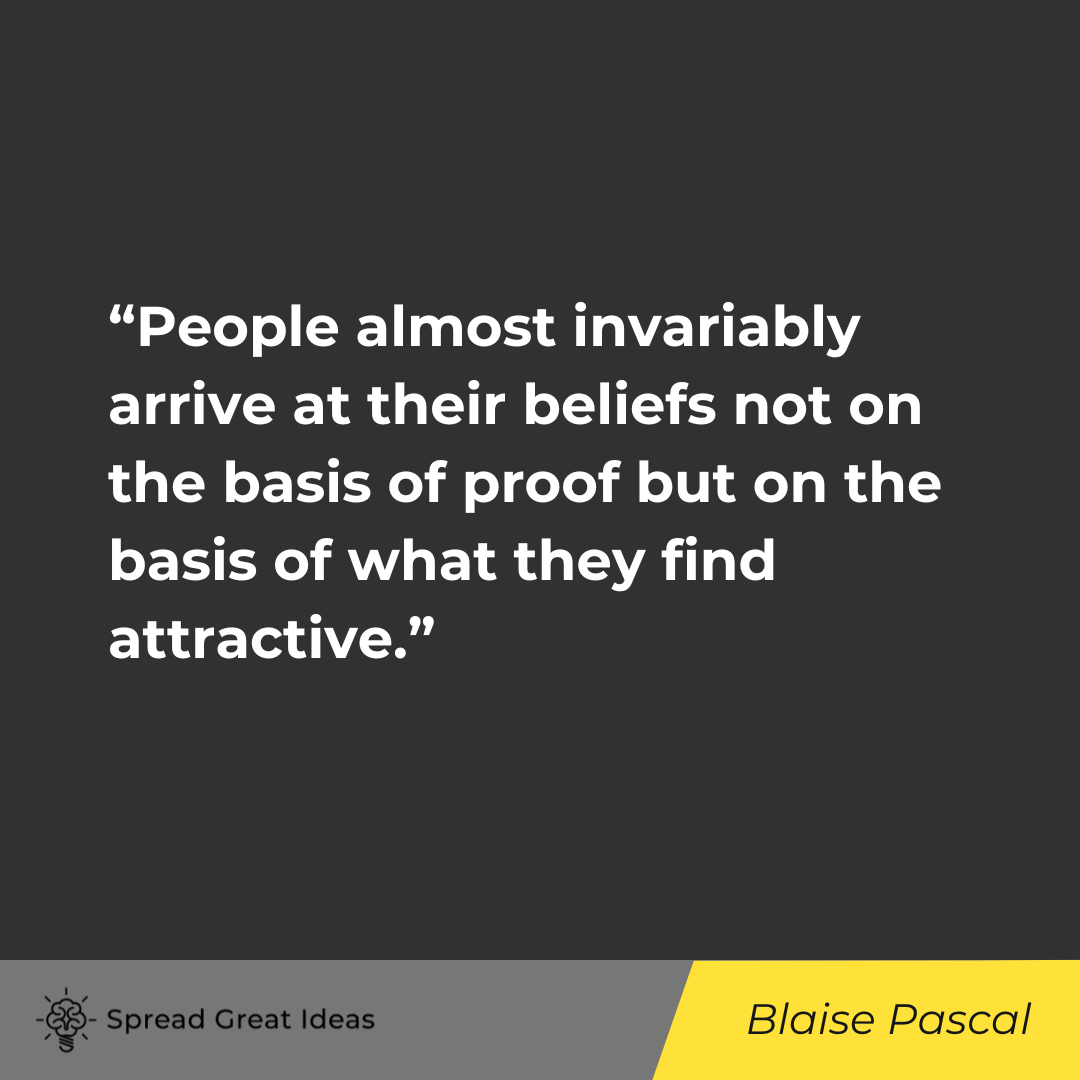
Jim Barksdale
“If we have data, let’s look at data. If all we have are opinions, let’s go with mine.”
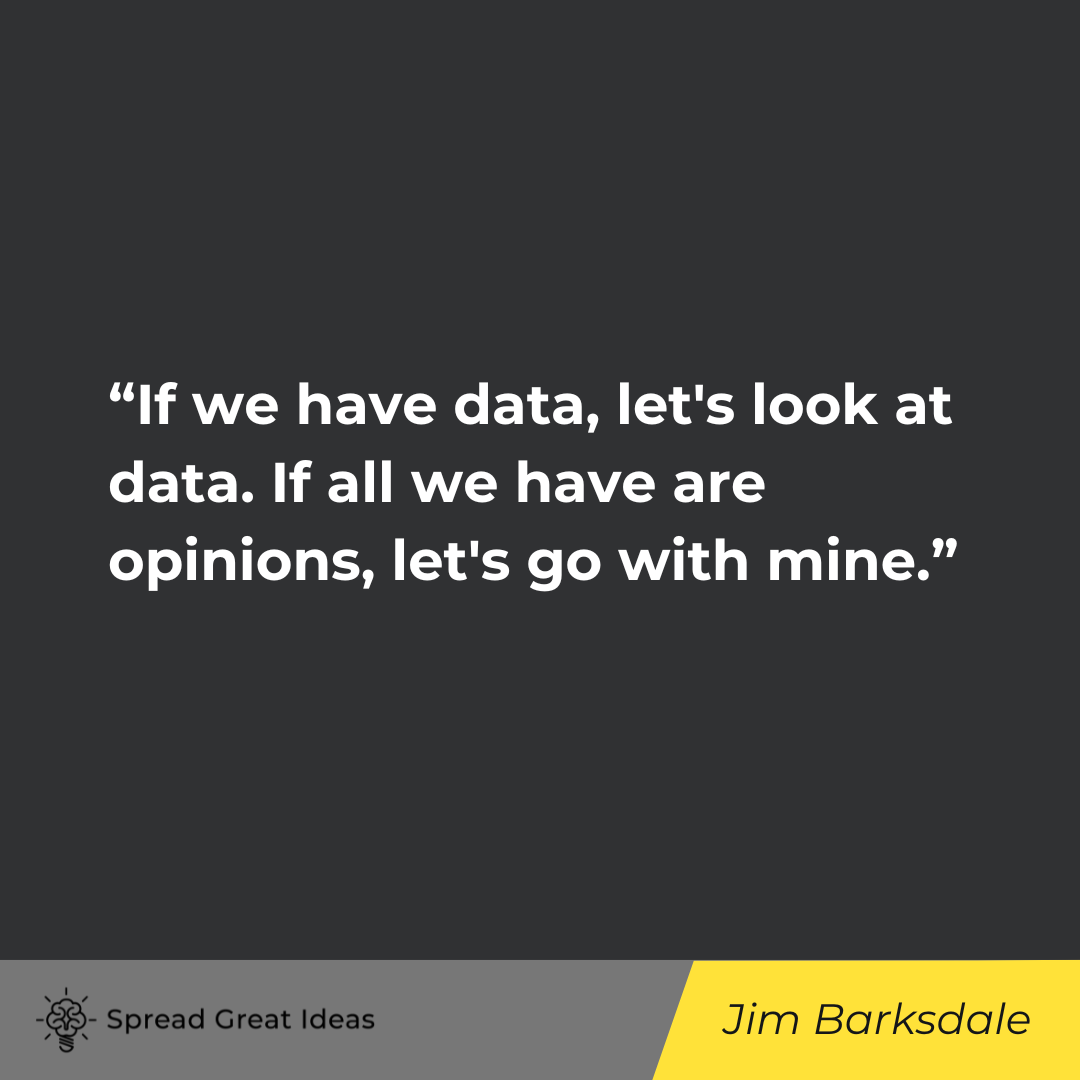
Daniel Patrick Moynihan
“Everyone is entitled to his own opinion, but not to his own facts.”
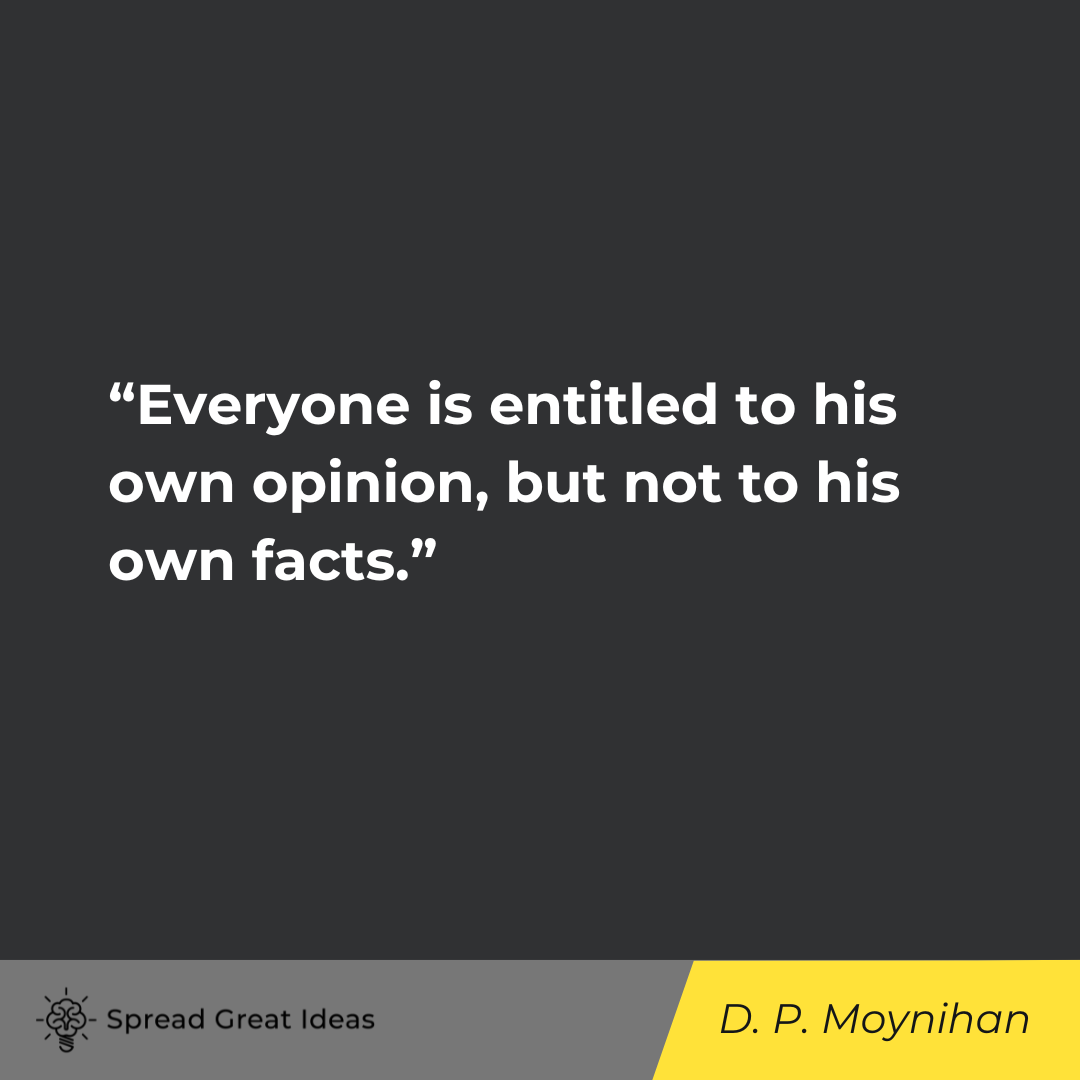
Winning Arguments vs. Winning in Life: Why You Are Pursuing The Wrong Thing
It’s almost self-evident that we should all try to win in life rather than win an argument. We all obviously want tangible returns and ultimate real success in life, rather…